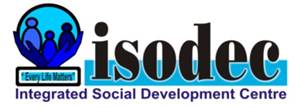The July 2024 Food Security Monitor report reveals a troubling escalation in food insecurity across Ghana, with the rate of insufficient food consumption (IFC) surging by 5.77%.
This increase is largely driven by the ongoing cost-of-living crisis, fueled by persistently high inflation, a weakening currency, and soaring fuel prices.
These factors have notably inflated the cost of essential commodities, particularly staples such as maize and rice.
This trend mirrors earlier projections from the World Food Programme (WFP) in their February 2024 report.
According to the WFP’s February 2024 country brief and preliminary March 2024 analysis, an estimated 1.05 million Ghanaians were expected to experience food insecurity between June and August 2024.
Contributing factors include climate change, low agricultural prices, inadequate infrastructure, and limited access to education, compounded by Ghana’s vulnerability to global market shifts, especially in the case of imported rice.
The report also highlights that, while the rate of IFC remained stable in most countries between June and July, Ghana, Nigeria, and Uganda saw increases of 5.77%, 3.98%, and 7.5% respectively. Zimbabwe, on the other hand, reported a 5.45% decrease.
On a year-over-year basis, the majority of countries have witnessed an increase in IFC, with exceptions being Mozambique, Rwanda, South Sudan, Uganda, and Zambia, where current levels are lower than those recorded a year ago.
Furthermore, the report identifies several nations as food insecurity hotspots—where more than half of the population faces IFC—including Burkina Faso (56.6%), Mali (69.1%), Niger (82.6%), and Nigeria (51.5%).














